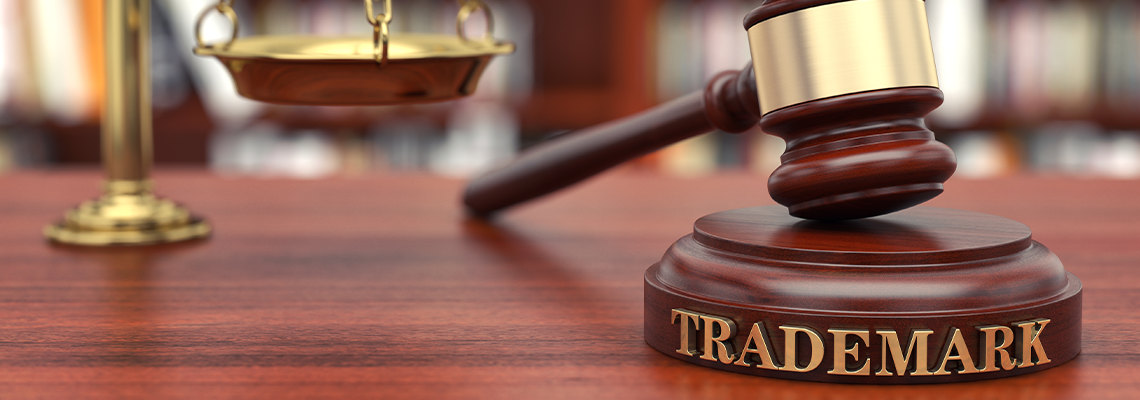
Can a Company Use Our Trademark Without Permission?
Both California and federal law protect the use of trademarks in commerce. The main difference is that a California registration is protected only within the state, while a trademark registered with the U.S. Patent and Trademark Office (USPTO) is protected throughout the country. Neither one provides international protection, however, so someone looking to protect a trademark worldwide will have to go through additional legal hoops.
This brings up the question: what comprises a trademark?
The USPTO answers this by declaring: “A trademark can be any word, phrase, symbol, design, or a combination of these things that identifies your goods or services. It’s how customers recognize you in the marketplace and distinguish you from your competitors.”
This definition brings up another legal aspect of trademarks: To be registered, trademarks must be connected to goods and services involved in commerce, that is, being marketed and sold. If a trademark is not yet being used in commerce, it qualifies only for an intent-to-use (ITU) filing, which reserves the mark but offers no protection until it is put to use.
Another question often arises: When it is permissible to use someone else’s trademark?
“Never” would be the answer if you’re planning to use it for the same commercial purposes as the original registrant. The owner of the trademark must give you permission to use it—such as what a franchisor would do for a franchisee—before it can be legally employed by a non-owner. But if you’re doing an article or video on trademarks, you can reproduce and refer to the logos being discussed. That would not be considered trademark infringement.
If you as a business owner in or around the Greater San Francisco Bay Area feel someone is using your trademark without your permission, contact the Law Offices of David H. Schwartz, INC. immediately. Attorney David Schwartz has more than 45 years’ experience in business litigation and he can assess your situation and advise you of the steps necessary to protect your trademark if you suspect infringement.
The Law Offices of David H. Schwartz, INC. proudly serves clients in and around the San Francisco Bay Area, including San Jose, San Mateo, Santa Clara, Oakland, and Alameda County.
Trademark Law
It’s essential to understand the basics of trademark law. As an example, suppose a hot dog stand owner is happy just to operate his business in the Petaluma, California area, but business thrives and he opens another location, and then one more. Soon, he feels he has a franchise-friendly concept (called ‘Hot Diggity Dawg’), so he looks into registering with the USPTO.
The owner applies for and receives protection for his trademark, and he is allowed to use the Circle R symbol next to the name, usually as a superscript or a subscript. The owner then acquires franchises across the nation that sell his particular style of hot dogs, but one day he stumbles upon an unfranchised store called ‘Hot Diggity Dawg’, and he contacts his attorney about an infringement lawsuit.
The problem is that this ‘Hot Diggity Dawg’ store is a clothing retailer that has no connection with food or food services. Does the fast-food owner have a case? Most likely not since a trademark registration protects the logo, word, phrase, or symbol only from use by someone marketing the same product or service.
As the USPTO explains on its website: “A common misconception is that having a trademark means you legally own a particular word or phrase and can prevent others from using it. However, you don’t have rights to the word or phrase in general, only to how that word or phrase is used with your specific goods or services.”
Enforcing Trademark Registration
If a business owner wants to take legal action to protect their trademark from infringement— illegal use by others—an infringement lawsuit can be filed in state or federal court.
If your trademark is registered only in California, then you would be confined to filing within the state court system, but if you have a USPTO trademark, you can choose to file either at the state or federal level. Most choose the federal court system, and in some instances, the defendant you’re suing can even request that the case be moved to a federal court.
This brings up another question: Can the same or similar trademark be owned by more than one person or entity?
The answer is yes, so long as the copycat trademarks are registered for different goods or services. This adds another legal layer to filing an infringement lawsuit. Perhaps the business you accuse of infringement actually has registered the same trademark for their commercial offering. In that case, there is probably no infringement.
In an infringement case, a lot boils down to whether the infringer’s use of your identical (or similar) trademark will cause confusion among consumers or users of your product or service. Even if there is no likelihood of confusion, the trademark owner can claim “dilution” of their mark because of its use by the other business.
Protect Your Business With Trusted Advice
There are gray areas and challenges both in registering and enforcing a trademark. To make sure your symbol, phrase, logo, word, or name is trademarkable and then enforceable, consult with an experienced trademark attorney every step of the way. If you’re in the Greater San Francisco Bay Area and your business is using or planning to use a registered trademark, contact the Law Offices of David H. Schwartz, INC. for advice and guidance on the proper steps to take in registering and protecting your mark.
